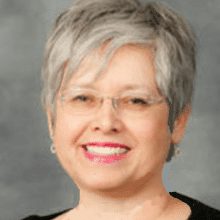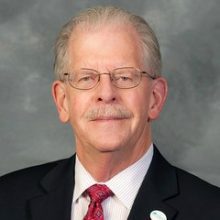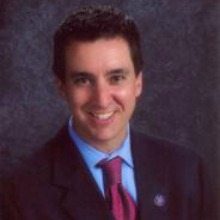
The 2015 K-12 STEM Symposium will feature break-out classroom sessions to provide resources for parents with children at different age levels to find out what age-appropriate STEM (science, technology, engineering, mathematics) options are out there. Three different speakers will separately address parents with students in elementary, middle and high school.
Elementary School
Dogwood Elementary School Advanced Academics Resource Teacher Linda Martin, a full-time educator and STEM advocate of 30 years, will speak to parents of elementary-aged students. She is a FCPS Teacher of the Year Finalist, 21st Century Girls Club Founder and Advisor and Summer Science Academy Lead Teacher. Her workshop will present the many types of activities children can encounter to develop a passion for STEM in grades 1-6 and how parents can support these opportunities at their school and after school clubs.
In a preview for her workshop, Martin writes,
“Imagine yourself dressed in thigh high waders, traipsing through a creek in search of macroinvertebrates on a quest to prove the health of a local stream. Beside you is a marine biologist and a high school mentor pointing out things to see. You wonder if your hand-made water filter will pick up anything exciting. You learn how to use a kick net. You plop a big pile of sludge on the water table to search for the tiny creatures to identify, count and document.
Back at school, you and your team write up your report, do the macroinvertebrate count using a professional health stream diagnostic tool and create a video montage of the experience to share with stakeholders. This is just one of many experiences children in elementary school can experience to spark an interest in STEM.”
Middle School

Fairfax County Public Schools After-School Programs Administrator Mark H. Emery, PhD will address middle school parents.
“There is a growing body of research that indicates that high quality out-of-school time programs (before-school, after-school, and summer) help children and youth develop an interest in STEM and STEM learning activities, develop capacities to productively engage in STEM activities, and come to value the goals of STEM activities,” Dr. Emery writes. “Studies found that students who had a higher dosage of STEM experiences in out-of-school programs consistently performed better than those who had fewer such opportunities.”
Parents in attendance will learn how after-school programs at the middle school level complement the school day and can play a major role in providing opportunities for a diverse group of young people to engage in challenging, experiential STEM learning activities. Additionally, find out how state-wide after-school networks across the country are driving improvements in program quality and forging partnerships to expand informal STEM learning. And learn what parents, business and industry leaders, and educators can do to expand out-of-school time STEM supports for children and youth.
High School
Thomas Jefferson High School for Science and Technology (TJHSST) College and Career Center Resource Specialist Eileen Kropf will speak to parents of high school students.
“For the high school student with an interest in STEM, summer enrichment opportunities are important for several reasons,” Kropf explained. “Research internships, STEM camps and academic programs on college campuses help students develop interests and passions beyond what the school can offer. These experiences can be pivotal in helping a student determine the direction they wish to go in a particular STEM field, and whether they are best suited for research or policy, academia or industry. A summer internship, a job on a college campus or a leadership position in a STEM camp can also provide a student with valuable professional contacts and mentors in their chosen field.”
Learn how you can encourage your student to find an opportunity that will help them develop their interests STEM.

STEM Symposium keynote speaker and TJHSST Principal Dr. Evan Glazer will elaborate on his earlier keynote talk, “The Tiger, Dolphin, and Jellyfish Parent – Which One is Best for STEM?”. He will speak on the extent to which parents should be encouraging their student to participate in STEM-related programs as they get older.
“I realize there are different parenting styles,” Dr. Glazer said previously in an interview with WashingtonExec, “so my intent is to inform parents of different perspectives of how to engage their students in STEM-related activities in a way that will work for their families.”
Click here for the full Symposium agenda.
The 2015 K-12 STEM Symposium is being made possible from the support of CTOVision, Fairfax County Chamber of Commerce, Intelligence and National Security Alliance, Professional Services Council, Sage Communications and United States Geospatial Intelligence Foundation. Leidos is Presenting Sponsor and Vencore is Platinum Sponsor.



2 Comments
Pingback: WashingtonExec RollCall: Your Inside Look at Our Network’s Professional Activity | WashingtonExec
Pingback: 2015 K-12 STEM Symposium Saturday, March 7, 2015: Everything You Need to Know Before You Go | WashingtonExec